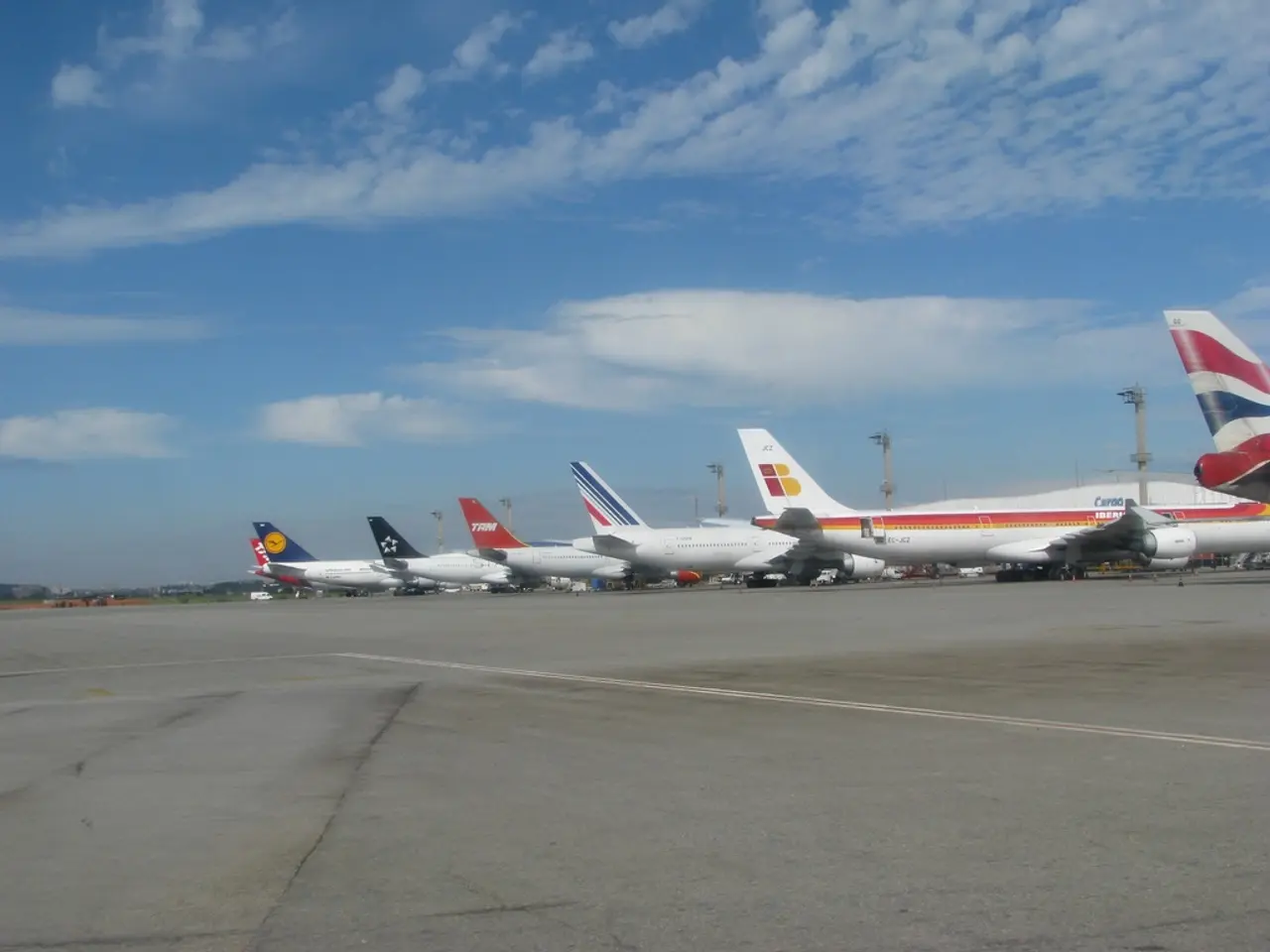Second day of disruptive air travel due to French air traffic controllers' walkout
The ongoing air traffic control strike in France, led by the UNSA-ICNA union and USAC-CGT, has caused significant disruption in France and across Europe. The strike, which peaked on July 3 and 4, 2025, is focused on demands for better pay, increased staffing, and improved management in the sector.
The impact on flights in France has been particularly severe, with many cancellations and delays reported. Paris airports, including Charles de Gaulle, Orly, and Beauvais, have been hit hardest, with around 40-50% of flights cancelled. The DGAC (Directorate General of Civil Aviation) initially ordered a 25% cancellation rate, but the actual figure has trended closer to 40%. Southern and island airports, such as Nice, Bastia, and Calvi, have seen up to 50% flight cancellations, while regional airports like Lyon, Marseille, Montpellier, Ajaccio, and Figari have experienced around 30% cancellations.
Despite these preventive cancellations, long delays and additional disruptions are expected across all French airports. The strike has not only affected French airports but has also triggered hundreds of cancellations of flights that fly over France, causing knock-on delays and cancellations throughout Europe. Airlines such as Ryanair have reported cancelling over 400 flights, impacting approximately 70,000 passengers.
The government, through Transport Minister Philippe Tabarot, has condemned the strike's timing during the busy summer holidays as "unacceptable". Unions cite staffing shortages and erosion of salaries due to inflation as key reasons for the strike, along with protest against stricter monitoring measures introduced following a near-collision at Bordeaux airport.
As of early July 2025, the strike has caused peak disruptions, with ongoing delays and cancellations expected as airlines and airports manage the backlog. Flight reductions are still in effect per DGAC mandates, and travelers are advised to expect continued significant delays. For Friday, the DGAC is asking companies to cancel 40% of flights to manage the strike.
European Airlines for Europe (A4E) expects 1,500 flights to be cancelled on Thursday and Friday in Europe, affecting 300,000 passengers. Ryanair's CEO, Michael O'Leary, has urged the EU Commission to protect such overflights by law in case of strikes. The strikes have been described as "shocking" by French Prime Minister Francois Bayrou.
One passenger, Julien Barthelemy, travelling from New York to Marseille, was stuck at Charles de Gaulle Airport due to the strikes and was on the waiting list for three flights. The strikes have affected more than just French airports, causing widespread disruption across Europe.
[1] Le Monde, "La grève des contrôleurs aériens: les conséquences pour les voyageurs" (The air traffic control strike: consequences for passengers), July 2, 2025. [2] BBC News, "French air traffic control strikes cause chaos for travellers" (French air traffic control strikes cause chaos for travellers), July 3, 2025. [3] Sky News, "French air traffic control strike causes chaos for travellers" (French air traffic control strike causes chaos for travellers), July 3, 2025. [4] The Guardian, "French air traffic control strikes cause chaos for travellers" (French air traffic control strikes cause chaos for travellers), July 3, 2025.
The ongoing air traffic control strike in France has caused a travel chaos, significantly impacting people's vacation plans within the country and across Europe. The lifestyle of many travelers has been disrupted, as they face long delays and cancellations, particularly in popular destinations like Paris, Nice, and Marseille. The strike has also sparked debate in the realm of politics, with the government criticizing the timing of the strike during the peak travel season and unions citing general-news issues such as staffing shortages and eroding salaries as reasons for the action.




